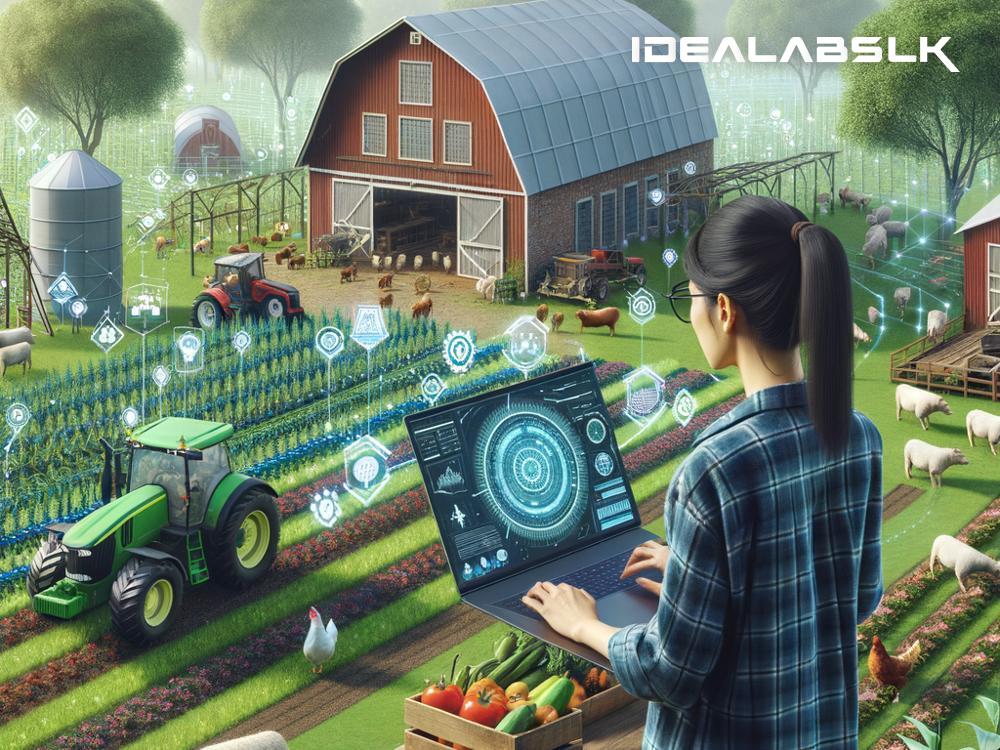How AI Will Revolutionize Game Worlds in Future Simulators Like Farming Simulator 2025
In the ever-evolving world of video games, developers are constantly seeking ways to enhance player experience, striving to create environments that are not just visually stunning but also dynamically realistic. One of the most promising tools in achieving this goal is Artificial Intelligence (AI). Particularly in simulation games, where the essence of gameplay revolves around replicating real-world scenarios, AI is poised to play a pivotal role. Let's dive into how AI will help game studios craft dynamic and realistic game worlds, taking the example of an anticipated title, Farming Simulator 2025.
Bringing the World to Life
Imagine stepping into a game where the environment reacts to your actions in the most realistic way possible. In Farming Simulator 2025, AI could enable the environment to change based on the player's farming practices. If you over-farm a piece of land, you might see the soil quality degrade over time, affecting the growth of crops. Conversely, practicing sustainable farming could enhance the land's fertility, leading to lush crops. AI can dynamically adjust the game world to reflect these changes, making the experience incredibly immersive.
Dynamic Weather Systems
Weather plays a crucial role in farming, and with AI, game developers can introduce highly realistic weather systems into simulators. These systems wouldn't just be pre-programmed patterns but dynamic weather events influenced by a variety of factors, including the player's actions. For instance, excessive use of water resources could lead to drier seasons, while balanced farming practices might maintain a healthy weather cycle. This level of dynamic environment would encourage players to think strategically about resource management.
Realistic Animal Behavior
Farming Simulator 2025 could leverage AI to simulate realistic animal behaviors, adding another layer of depth to the gameplay. Animals could react to the environment, the player’s actions, and each other in nuanced ways. For instance, the health and productivity of livestock might directly respond to how well they are cared for, including the quality of their feed and shelter. Predatory animals might pose a threat to livestock if not properly managed, prompting players to strategize their farm layout and management practices.
Advanced Crop and Soil Simulation
With AI, the interaction between soil and crops can be accurately modeled. Each crop could have specific needs, and how you meet these needs could directly affect their growth and yield. AI can simulate soil composition, moisture levels, and nutrient needs, creating a complex system where every decision matters. For the player, this means a deeper farming experience where knowledge and strategy play crucial roles in success.
Adaptive AI Rivals and Economy
In the world of Farming Simulator 2025, AI can be used to create rival farmers who compete with the player in the same market. These rivals wouldn't just follow a script but adapt based on the player's actions and the state of the game world. The actions of these AI rivals could affect market prices, demand for certain crops, and even introduce unexpected challenges, such as a rival cornering the market on a particular crop, forcing the player to adapt their strategy. Moreover, the game's economy could also be dynamic, with prices and demand fluctuating based on a variety of factors, including the collective actions of AI-driven entities.
Enhancing Player Interaction and Engagement
Finally, AI can significantly enhance how players interact with the game world and engage with its content. For example, dialogue with NPC (Non-Player Characters) farmers could be driven by AI, leading to more natural and varied interactions. These NPCs could provide tips, offer trade deals, or even share rumors about weather predictions or market trends, based on the current state of the game world. This level of interaction would not only make the game world feel more alive but also offer players a more immersive and engaging experience.
In conclusion, the integration of AI in game development, especially in simulation games like Farming Simulator 2025, opens up endless possibilities for creating dynamic and realistic game worlds. From environment and weather systems to animal behavior and economic simulations, AI has the potential to revolutionize the way we experience games. As we look to the future, it’s clear that AI will play a crucial role in blurring the lines between game and reality, offering players experiences that are as enriching as they are entertaining.

